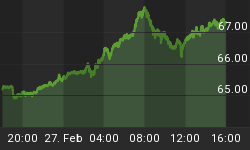Today's decision by the Bank of England's Monetary Policy Committee (MPC) to leave the repo rate at 4.75% was widely expected, after last month's pre-emptive 25bp hike. The markets are expecting that the next move will be an increase on November 9 - but this will depend on the data continuing to support the projections made in the Bank's August Inflation Report. In particular, the MPC members will be watching to see whether above-target inflation starts to feed into inflation expectations and wages growth; and whether consumer spending and the housing market continue to show signs of strength.
So far, the data are in line with the Bank's forecasts - i.e., pointing to the need for another rate hike before year's end. Consumer spending appears to have held up despite the August rate increase - the British Retail Consortium reported that like-for-like sales in August grew 2.5% on the year, while the Confederation of British Industry said that August retail sales grew at their fastest pace in more than 18 months. The monthly retail sales survey from the Office for National Statistics comes out September 14, and the assumption is that it will confirm this image of robust growth.
House price reports from the largest lenders, Halifax and Nationwide, showed firm increases last month (1.0% and 0.8%, respectively). The next housing survey from the Royal Institute of Chartered Surveyors, on September 13, will give a broader picture of market price developments, but so far the housing market looks to be firmly in recovery mode. Mortgage lending grew in July by its largest amount in some three years, and approvals for new loans also picked up, reaching a year-to-date high. Whether the August tightening had any impact on lending last month will be apparent in the lending and credit reports that come out on September 29. That date will also see the release of the latest GfK consumer confidence report. The end-August report showed a sharp deterioration in confidence, but this came hard on the heels of chaos at the nation's airports on news of a foiled terrorist plot to blow up several airplanes. It remains to be seen whether this drop in confidence was a one-off, or the start of a more gloomy trend in general.
Coming up next week are August output prices (September 11) and CPI (September 12), followed by the average earnings survey for July and unemployment data for August (both on September 13). By the end of the week we will have a better picture of whether producers are starting to pass on more of their costs and whether earnings continue to creep upward.
Finally, the minutes of today's policy meeting will be released September 20, telling us just what the members were concerned about. Over the coming weeks, the markets are likely to focus more on PM Tony Blair's probable exit within the next eight months, and it is possible that political upheavals may encourage a further downturn in consumer confidence. But it will take a number of downward data surprises to stay the BoE's hand in Q4.















